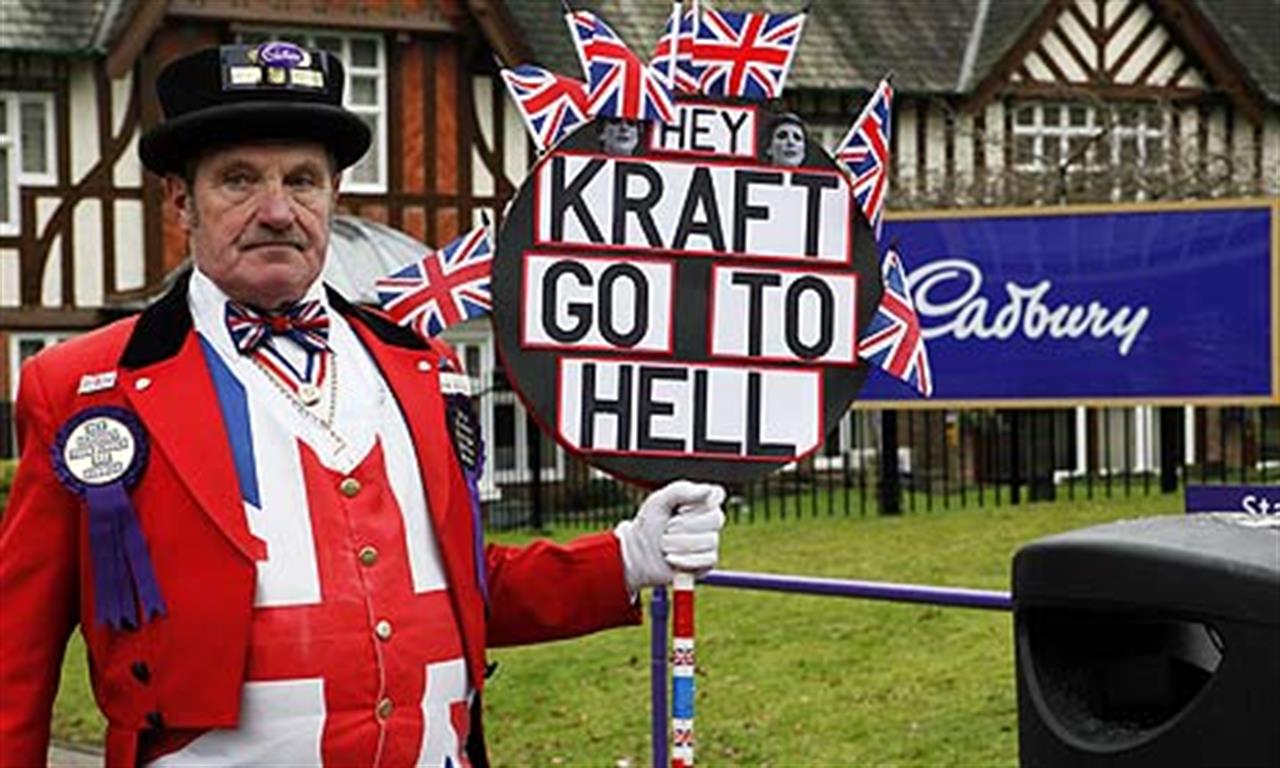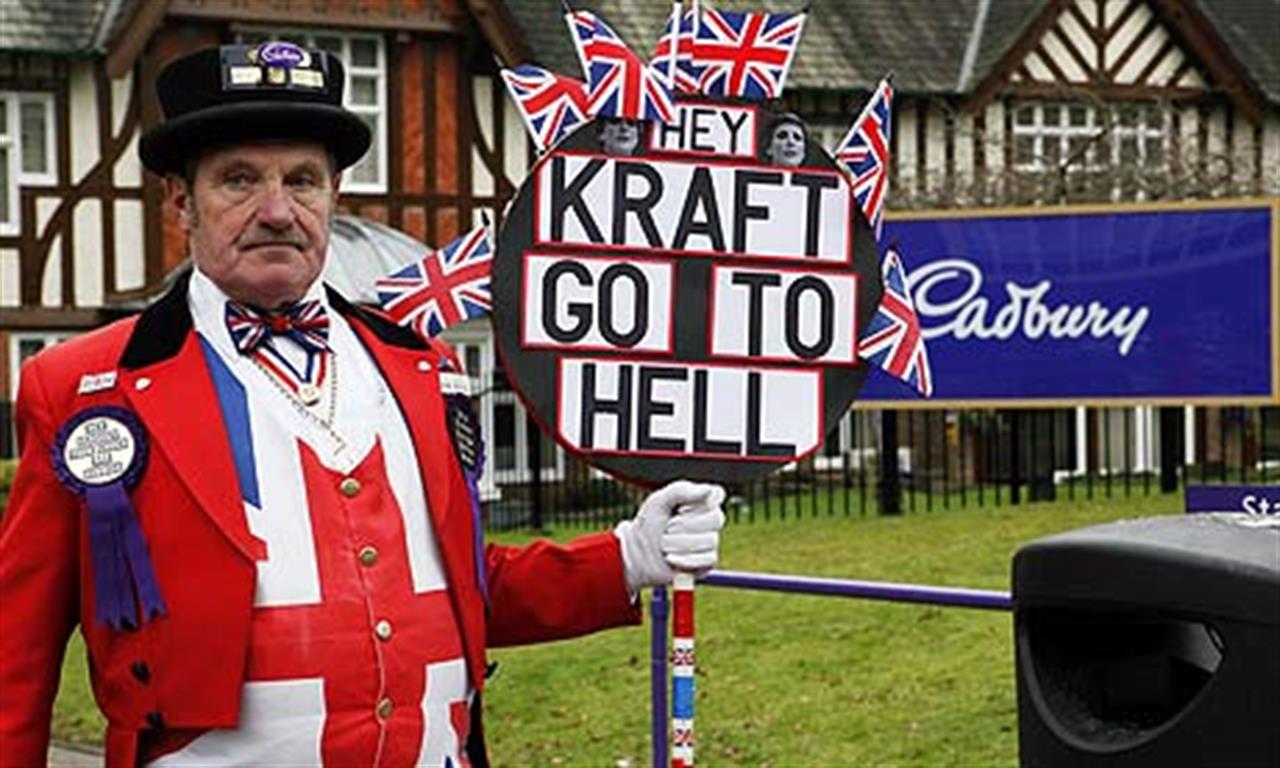
The French are not the only ones to rediscover nationalism in the recession. Even the champions of liberalism have fallen in the trap when another national champion – the chocolate maker Cadbury – has been taken over by foreigners.
The chocolate is not amongst the British exports what we will miss if compared to the Belgian and Swiss production. However, I understand the rage of the natives. In Italian you would comment ‘every cockroach has a mother who loves it’. On the other hand, I’m wondering if we might see charities overawed by competitors in the future.
Economic recovery is insignificant, spending cuts are sure, donations are plummeting and liberalization of social services has already started. Charities have strived in isolation so far but haven’t acquired neither the skills nor mindset to compete internationally. Do they risk going out of business in the next few years?
I briefly spoke at an event of Capacity Builders – the British quango grantmaker – on lessons from aborad on capacity building. I was asked to comment on a report.
Despite having built one of the largest empires in history and having quickly lost in the aftermaths of the Second World War, the charity guys sounds so naive when they talk about the others: ” We look beyond our shores to discover the colourful habits of civil society or help poor people”.
They look like something in between a liberal spinster travelling across Southern Italy in a film of Ivory, and an anthropologist in love with uncorrupted pre-modern societies living in remote village in Southern Africa.
Charities here haven’t ‘got’ globalization yet. However, globalization is happening in the third sector as in all other sectors and London is one of its engines.
In the last 5 years I’ve been in London I’ve seen at least 30 large foreign NGOs opening an office in London. They come from across the world: mainly US, continental Europe, BRICS and various African countries.
The first wave was the relief INGOs such as CARE, MSM and Transparency International. Now you can find foundations from the US and China, social enterprises from Bangladesh and Brazil and campaigning organisations from Italy and the Middle East.
They all move to London for the same reasons: funding. Some have started competing for visibility and influence on policy.
While London is becoming the global hub of civil society – therefore why I moved here… not for the weather! – native charities haven’t been equipped to face international competition at home. They haven’t developed neither the mindset nor skills.
Moreover, For the last 15 years the sector has been blessed by highest economic growth in Europe and the most supportive goverment to the sector ever seen. Except for INGOs, charities didn’t have to partner with peers in other countries and could snub international funding. However, they missed the opportunity to build up international skills and networks especially with the EU.
Whatever the next UK government will be, we will see harsh cuts in public spending and reinforcing the current trend in moving from grants to tenders. It’s likely that tenders will be open to the best offer without descrimination between national and foreign providers as in the business sector. Charities will have to compete with both companies and foreign peers for contracts. Moreover, they will compete for European funding when very few of them have developed the capacity to apply.
Only the European Social Fund brings €8bn to the sector. Since the ned of 2008 Euclid Network has campainged to reform the European financial regulation and make it more customer friendly. This week the Compact launched a review on ESF. However, media have paid little attention to the topic and charities keep on dismissing this unique funding opportunity as bureaucratic instead of acting together for change.
My general impression is that British charities still live in the last century mindset, comfortable in feeling safe on the island, protected by the channel from the rest of Europe and the world. They pretend to be special but risk falling isolated in a globalizing world which requires good friends to service.
In the same week the political and business leaders have gathered in Davos to discuss business for the rest of the year. Charities leaders watch this at the TV. They haven’t realized what the other leaders are doing and it’s time for them to join the game.
The sector in the country is becoming a international competitiive market, a social market, but still a market where the best offer wins.
As Benny said: “We colonized the world. Now the world is coming back to thank us!”
17 centesimi al giorno sono troppi?
Poco più di un euro a settimana, un caffè al bar o forse meno. 60 euro l’anno per tutti i contenuti di VITA, gli articoli online senza pubblicità, i magazine, le newsletter, i podcast, le infografiche e i libri digitali. Ma soprattutto per aiutarci a raccontare il sociale con sempre maggiore forza e incisività.

